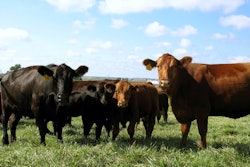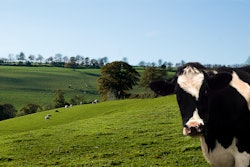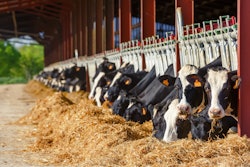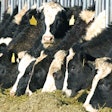The University of Galway has received EUR1.4 million (US$1.5 million) to lead a research consortium to pioneer greenhouse gas reduction solutions for agriculture.
Teagasc, the Northern Ireland-based Agri-Food and Biosciences Institute (AFBI) and the Irish Cattle Breeding Federation will work with scientists at the university to expand testing and evaluation of a combination of cutting-edge technologies and farming innovations to lower methane emissions from cattle and sheep.
The research-based project, Methane Abatement in Grazing Systems (MAGS) focuses on evaluating solutions for feed, breeding and manure management.
It aims to apply the most effective feed additives, while improving their formulation for long-lasting effects, in combination with novel genomic breeding and manure management. Scientific analysis will identify the best combinations of strategies which can be delivered on farms in Northern Ireland and in the Republic, through the Teagasc Signpost program.
“The MAGS project will focus on further developing technologies, including methane inhibitors and breeding strategies, for application in beef and dairy pasture-based systems to mitigate animal and manure methane,” said Martin Heydon T.D., Minister of State at the Department of Agriculture, Food and the Marine. “Ireland has committed to reducing agricultural greenhouse gas emissions by 25% by 2030. Research investment into novel methane reduction technologies through projects like MAGS is a central part of achieving these targets. An important aspect of the project is research collaboration, and I am pleased that the project coordinator, Dr. Sinéad Waters, has brought together scientific partners from across the Island of Ireland to concentrate ideas, expertise and knowledge in a way that accelerates progress in these novel technologies.”
Agriculture contributes about 37% of Irish greenhouse gas emissions. Government has committed to reducing these farming related emissions by 25% by 2030, including a recommended 10% reduction in agri-methane.
Methane accounts for about 70% of emissions associated with agriculture, predominantly from methane produced in the gut of the animal as feed ferments in the rumen, while methane from manure and slurry are the third largest contributor to emissions from farms.

















